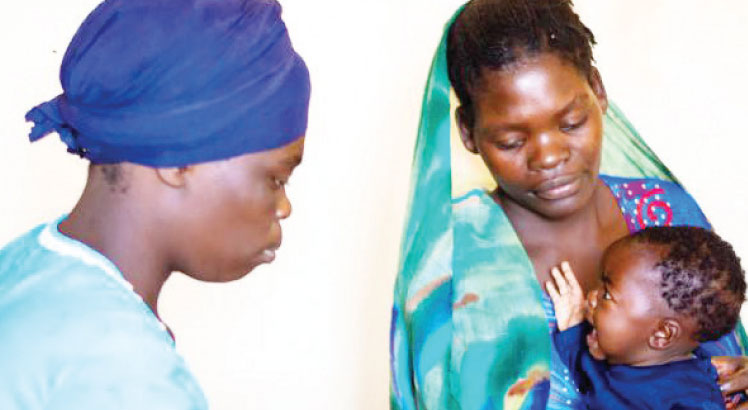Village clinics ease nutrition care
Two months ago, Gladys Ojezi walked at least 15 kilometres(km) to Mkumba Health Centre in Mangochi when her two-year-old baby suffered acute diarrhoea and breathing difficulties at night.
The mother of three woke up at 5am for the three-hour trip.
“Dija was sickly and underweight, having lost appetite a month earlier. Due to the long walk, I only took her to the health facility when the situation got out of hand,” explains Ojezi.
The baby received ready-to-use therapeutic food (RUTF) after being diagnosed with severe acute malnutrition. The peanut butter supplement is used for treating severe wasting in malnourished children under five years old.

“I wasn’t surprised that my only daughter was malnourished. She loves food, but it had been weeks since she had eaten,” Ojezi states.
Two times, baby Dija received 14 packets of RUTF a week from Mkumba Health Centre.
However, Ojezi rues the long travel with a baby on her back as policymakers envisaged everyone travelling less than five kilometres to get quality health services.
“Replenishing the weekly dose proved repelling and costly as my family thrives on hand-to-mouth piecework,” she says. “I had to leave home by 5am only to return around 3pm. I couldn’t afford to hitch a bicycle or motorcycle.”
Peace of mind
A return trip from Chokola Village to Mkumba costs up to K10 000.
The mother felt relieved on the third trip when she walked just about 30 minutes to receive the RUTF at a village clinic near her home.
“Throughout the half-hour walk, I remembered the tiresome trip to Mkumba. The time and energy wasted would have been used to do piecework so that my children can afford a nutritious meal,” she says.
The long travels over hills and valleys in the thick of Liwonde National Park discourage women from presenting children for malnutrition screening and treatment, Ojezi explains.
She reckons families were getting poorer while spending valuable time and money on the rocky road that splits the protected forest.
“Crossing the thick forest early in the morning or late in the evening is scary. The roaming wild animals or rapists can waylay you with no rescue in sight,” she explains.
Janet John is the secretary of the village clinic committee of 10 which monitors service delivery and supports a healthcare provider.
She says: “A walk to Mkumba takes three hours, but takes longer when you are sick or carrying a child.”
With the village clinic in the vicinity, even those who cannot afford a bike no longer leave home before sunrise or shun health services.
“This gives me peace of mind as our clients now save time for activities that can lift their families out of hunger and poverty,” John says.
For committee member Dina Wilson, gone are the days when long travels left children dying from treatable malnutrition and deprived routine immunisation by their fifth birthday.
“Most children in the area were not fully vaccinated and those with malnutrition were dying before knowing their status. Now they seek medical assistance on time” she says.
Unicef, with funding from the UK’s Foreign, Commonwealth and Development Office, is supporting the Ministry of Health to strengthen community management of acute malnutrition.
This includes training of front health workers and provision of essential supplies such as RUTF, therapeutic milk and tool kits for nutrition screening.
Every Thursday, health surveillance assistant (HSA) Adbester Banda, from Mkumba, dispenses nutrition supplements to children with severe acute malnutrition. Each goes home with 14 sachets for seven days, two per day.
The community health worker also provides nutrition screening, immunisation and modern family methods alongside treatment for common killers of children such as malaria, pneumonia, coughs, eye problems and diarrhoea.
“I have been coming here every week since 2016. I use my personal motorbike. However, I pity the rural dwellers who used to travel longer, often on foot, to get to the health centre. To them, the health clinic under Mgawo Health Post is a huge relief,” he says.
Getting better
A village clinic is supposed to see less than 10 people, but Banda sees more every Thursday.
Still, Ojezi is happy that the HSA and volunteers at the village clinic assists her child with a smile and clearly explain ways to prevent malnutrition, including eating six food groups and practising sanitation and hygiene..
Her child is steadily getting better.
She brags: “Dija’s weight has increased from 11 to 12 kilogrammes in three weeks and she is no longer frequently bedridden. She loves eating, particularly RUTF.”






One Comment